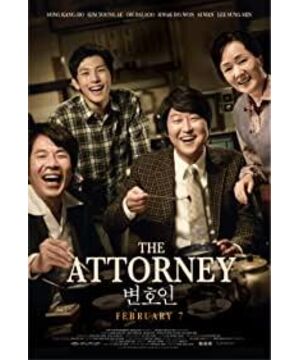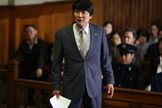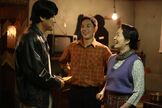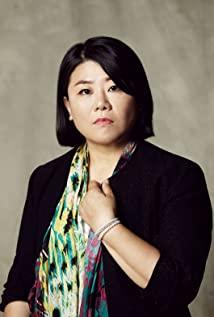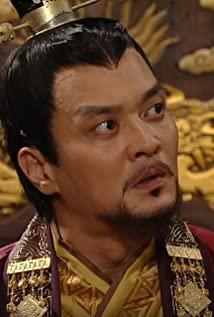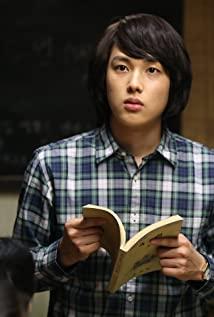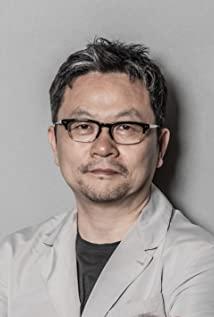We are willing to call some movies that reflect the changes of the times and the ups and downs of the characters in the times as epic movies. Of course, there is no standard for how to measure a movie as an epic. The scene is large, the time span is long, and the characters are numerous... I think these can only be counted as epic. The final judgment of the elements that make up an epic movie may still be in the hearts of movie fans. When you finish watching a movie, you sigh, classic, epic, yes, this is your epic movie. In my mind, "The Defender" is regarded as an epic movie. Although there is no big scene, there is a big aura. When the emperor is angry, blood can drift, this is a big aura; when a man is angry, blood splashes a hundred steps, this aura is equally powerful.
You can express your aura, even if you tell Piff’s story, it is also an epic; otherwise, even if you are describing your family, country, and the world, you may only gain a big and unwarranted one. For example, in Zhang Yimou’s "Hero", the central idea is the word "Tian Xia", but the characters in it are too convincing. How could the audience believe in the beliefs of the assassins? King Qin's beliefs were easily "Tian Xia". The word changed? If writing two words and giving a speech can change a person's values (this change is not necessarily correct), then the terrorists in this world have long been educated and transformed. There is also Ning Hao's "Golden Robbery". The process of turning a little ruffian into a revolutionary is too simple and rude. If the character changes cannot be convincing, the whole movie will lose the power of humanity preaching.
"The Defender" is a film describing the growth of Piff. It is also possible that from a high standard, the expression of the film is not restrained enough, but the characterization of the protagonist's humanity, especially the transformation of his mental process, is very logical and persuasive force. Even if the subject matter is aside, the level of character shaping is worthy of our directorship. Many people think that the environment does not allow us to make such a movie. I disagree with this view. I naturally don’t agree with Teacher Zhang Guoli’s point of view. I don’t think we can shoot "House of Cards" because it is not an environmental problem, but a problem of ability. If you don’t believe us, let’s try to make a non-taboo "You From the Star"? Behind these two films is the extremely mature TV drama industry. It is not ruled out that one of our screenwriters and directors broke out to produce magical works such as "Latent" and "Towards the Republic", but we are not yet able to mass-produce TV series with balanced standards like the United States and South Korea.
Let’s talk about how this film portrays the characters. I have always believed that human nature is difficult to change. After a major change in a person’s values, whether it becomes better or worse, it’s because he is such a person in the first place, but it was previously limited to external factors such as environment, knowledge, etc. He didn't realize this. The protagonist of the film, Song Youshuo, showed a kind of profiteering at the beginning, and even played the edge of the law in order to make money. His behavior is not tolerated by the lawyer circle at all. In the first half hour of the film, he talks about the environment he lives in, high pressure and poverty. This is the reason why he is only profitable. He hopes to be able to take care of himself in such a space. This description also portrays his personality, such as strong self-esteem, such as tenaciousness, such as flexibility, these are the bargaining chips for his later performance in court. But if these character traits are placed on a bad person, then it is impossible for him to become that person later. So such a small detail is arranged in the film-practice sailing.
A senior lawyer whom Song Youshuo respected wanted to choose a lawyer, but Song Youshuo was obviously not his choice. In his eyes, Song Youshuo was a person who was greedy for riches and pleasures, and he did not agree with each other. One piece of evidence is that he heard that Song Youshuo bought a yacht. When he had to find Song Youshuo, he found that it was a sailboat. Song Youshuo's purpose in buying and practicing sailing boats is to participate in the Olympics and win glory for the country. This expression is obvious, this is a person who hopes to do something for the country, but he has not found a path yet. Why would such a person who favors his ideas turn a blind eye to social injustice? The conflict between him and reporters and classmates in the pub tells us that this is not a question of position, but a question of understanding.
I think the best character design of the film is to design the two images of mother and son in the tavern. We have no way of knowing the motive of Roh Moo-hyun's inner change. But in the movie, Song Youshuo was given a motive: a mother and son who could be said to be gracious to him and comparable to their relatives, were wronged and had nowhere to ask for help. Therefore, what got him involved in this incident at the beginning and finally changed is not the idea, but the emotion. Emotion is always easier to persuade a person than theory. It is not only the protagonist, but also the audience. After that, it was logical. The process of his defense was the process of his growth. His emotions were gradually intertwined with his ideas, and his character traits began to play a role. By this time, his independent values began to transform into the world. And most importantly, he was originally such a person.
The film not only created a vivid role for Song Youshuo, but also in many major supporting roles, we have seen the expression of concepts. For example, his fellow journalist who dared to be angry but did not dare to speak clearly reminds people of the famous motto: If a good person does not speak, the bad person will succeed. Another example is the policeman who helped the abuser. He absolutely believes that his behavior is correct and for the benefit of the country. He shows what Hannah Arendt calls the "banal evil". These characters don't have much ink, but they are equally vivid.
Those lawyers in Busan, from the initial contempt to the final respect, in fact, the values are consistent. When all of this piled up, and at the end of the film, when 99 lawyers appeared in the court to jointly demand to defend Song Youshuo, the logic became very understandable and the emotions were extremely abundant. It's like the ending of "Dead Poetry Society". It is not the ending that makes you cry, but the power accumulated in the whole movie. If the design of such a sensational ending does not move the audience, then there must be something wrong with the movie.
The screenwriter Lu Wei especially praises "The Last Emperor" because this movie expresses history from the perspective of human nature, while our films always express history from the perspective of ideology. If you can’t figure out the normal emotional needs and behavioral logic of human nature, how can a character be shaped like a living person? How can such a dummy move the audience? Just like the "Downton Abbey" that I love, what people do best is not in the well-made production, but in the fullness of humanity and correct values.
View more about The Attorney reviews


